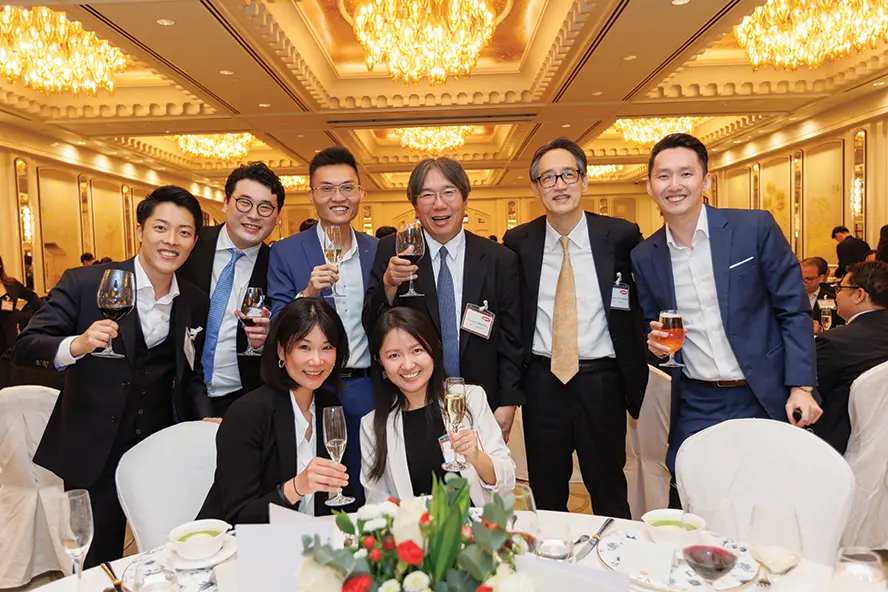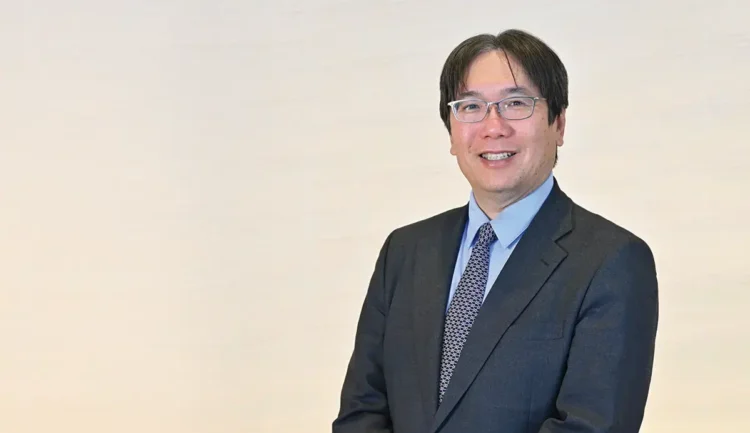Yasushi Shigeta, Chairman and owner of one of the world’s largest gaming industry suppliers, Angel Group, sits down with Inside Asian Gaming to discuss the company’s evolution into a true industry titan during his 30-year tenure. He recounts how Angel revolutionized the way casino playing cards are manufactured and dealt, its progression into smart gaming tables and why security and secrecy remain at the forefront of the company’s operational philosophy.
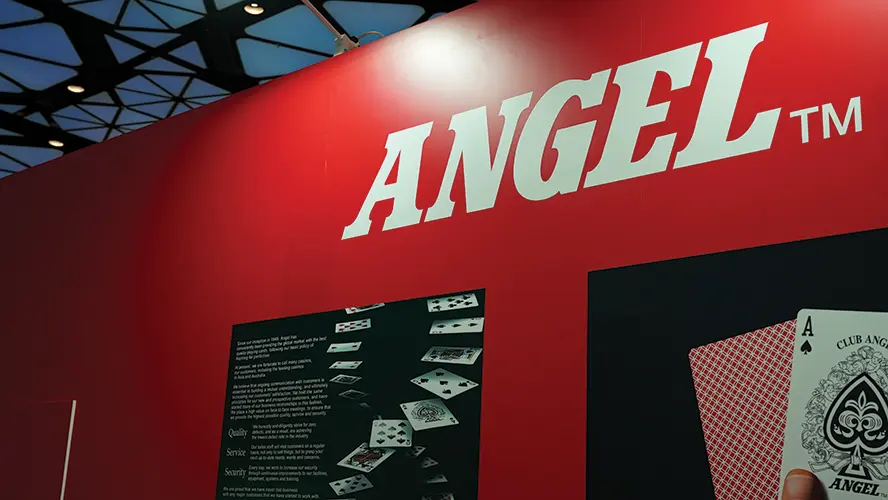 Ben Blaschke: Thank you for taking the time to speak to Inside Asian Gaming. You have been part of the Angel Group for many decades now and in that time you’ve seen the company grow to become one of the largest industry suppliers in Asia. What are you most proud of?
Ben Blaschke: Thank you for taking the time to speak to Inside Asian Gaming. You have been part of the Angel Group for many decades now and in that time you’ve seen the company grow to become one of the largest industry suppliers in Asia. What are you most proud of?
Yasushi Shigeta: It was a little before 2000 when I first started in this industry, and my desire was to become a contributor to this industry through doing business. At the same time, we needed to solve many problems that were related to assisting such a fast-growing industry. Although our role was to support from the background and not be at the forefront, we have been able to contribute to the industry. As the casino industry grew, we were able to provide products and services that enabled those casinos to go through rapid growth in a smooth fashion.
Some examples include the pre-shuffled cards that enabled casinos to eradicate shuffling in the back-of-house and the card rooms, and the Angel Eye shoe which, by increasing security, decreased the need for people to be monitoring the tables out on the floor. So, as the industry grew, we were able to contribute as suppliers. That’s what I’m most proud of.
BB: Can you recall how you came to first join Angel and what your early impressions were at that time?
YS: My first job out of school was in management consulting, but because Angel was a family business I was always aware of what the business was like back in those days (primarily selling playing cards for home use). It was then a less than US$10 million revenue company and was experiencing a lot of challenges due to the times – especially with the birth rate in Japan going down and the number of kids buying playing cards for home use going down.
The market was shrinking and, if there were no changes to the company or the strategy, then I don’t think there would have been a bright future for Angel.
I joined the company because my father had a little bit of a health crisis – that was the first time that I became involved.
BB: How and why did you recognize that there were significant opportunities for the company within the gaming and casino sector?
YS: Well, when it came to playing cards for home use or family use, a lot of companies were able to produce those and there was really no discernible difference between the products. But in the casino industry, the market was big and the industry had a lot of very advanced needs – mainly around security and the quality of the product. At that time there were only a few companies – European and US companies – that were catering to this market and none of them were from Asia or Australia.
So that was one of the impressions that I had in entering into this market.
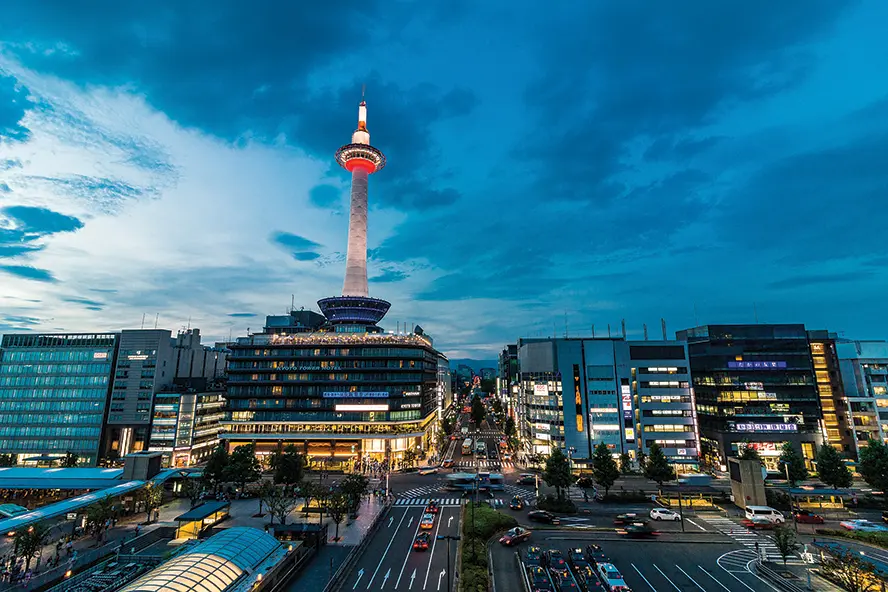
BB: I understand that Australia was a very early market for the company. How did that opportunity come about? Do you recall why Australian operators chose Angel playing cards?
YS: Just to be clear, we didn’t have any connections to any casinos when we first started. Back then there were maybe 10 or so major casino operators, so every single one was a potential new customer that we looked to gradually build a relationship with. That’s where we started from.
In terms of why Australia was the first market for us, this was because they were the casinos that requested certain things – mainly to provide something new that they hadn’t seen before. They weren’t asking for us to provide the same product as everyone else only cheaper, they were seeking a different function from what they were getting at the time. One of those was plastic cards for blackjack. As opposed to switching out paper cards every shift or every eight hours or so, they wanted something that would last more than three days.
Also, one of the products that they asked for was factory pre-shuffled cards. These were brand-new ideas, new products that they were asking for and not things that the existing competitors were providing.
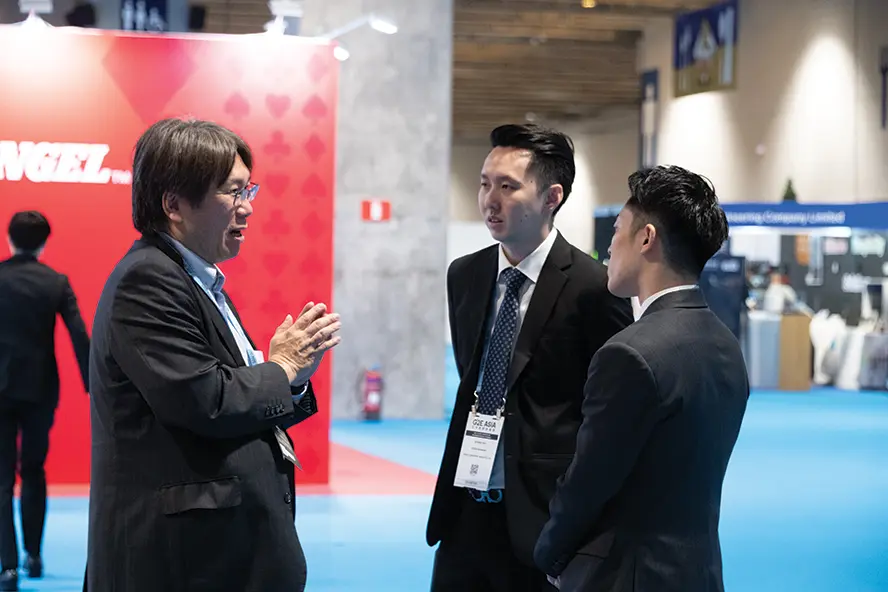 BB: As you say, Angel has played a central role in developing the high-quality playing cards we see around the world today. What flaws did you recognize in the playing card industry during those early days and what features did Angel implement to improve card quality and security?
BB: As you say, Angel has played a central role in developing the high-quality playing cards we see around the world today. What flaws did you recognize in the playing card industry during those early days and what features did Angel implement to improve card quality and security?
YS: Many playing card manufacturers at that time likely would have had their retail cards as their main business and casino cards as perhaps a subset or a different division. They may have had their own salespeople for their casino playing cards, but the factory would have been the same and they would have just stuck a casino logo on the back. They might have had a little bit more quality control, but for the most part it would have been like their retail cards. For casinos, that really wasn’t good enough.
Also, since most of these companies were Western companies, their proximity was to their local casinos and they were a long way from the casinos in Asia or Australia. That means they were not as agile in responding to the customers’ requests. Angel set about to change that, for example by constructing a dedicated factory for casino playing cards.
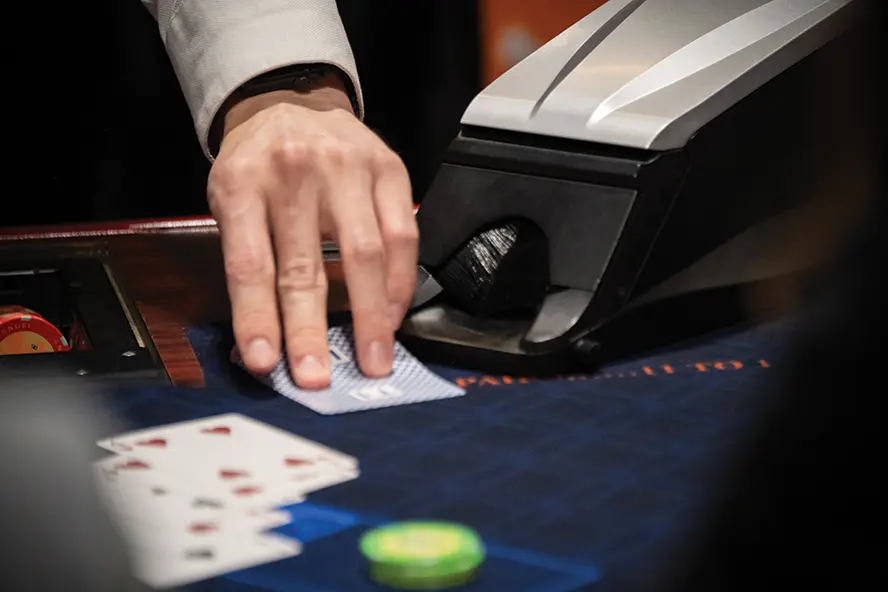 BB: The Angel Eye has proved to be a revolutionary tool for casinos around the world. What encouraged you to develop this technology?
BB: The Angel Eye has proved to be a revolutionary tool for casinos around the world. What encouraged you to develop this technology?
YS: The Angel Eye was conceptualized as a security shoe for baccarat. Baccarat had problems with card switching, because people handled cards on the table, so there were opportunities for some malicious people to switch cards to their advantage. That was not only a problem for the casinos – because they would lose money – but also for players because they would think it was an unfair game if people were cheating. So, that was the concept we had for Angel Eye.
What we implemented was a dedicated code for each card, meaning that it needed to be an Angel-manufactured card for it to be read by the shoe. It was reading a code that was printed on the card for security purposes.
We also didn’t want the reading to happen beforehand, because if someone hacked into the system and the card was read prior to the deal, then that person would have the information for the next card to be drawn. We didn’t want that to be possible so we conceived that the reading should happen as the card was being drawn from the shoe – as it was happening on the table. This also closed a loophole for hackers to be involved in the process.
There were some electronic shoes which had come out in the market, but our main focus was always on the security of the baccarat game, and that is how we developed Angel Eye.
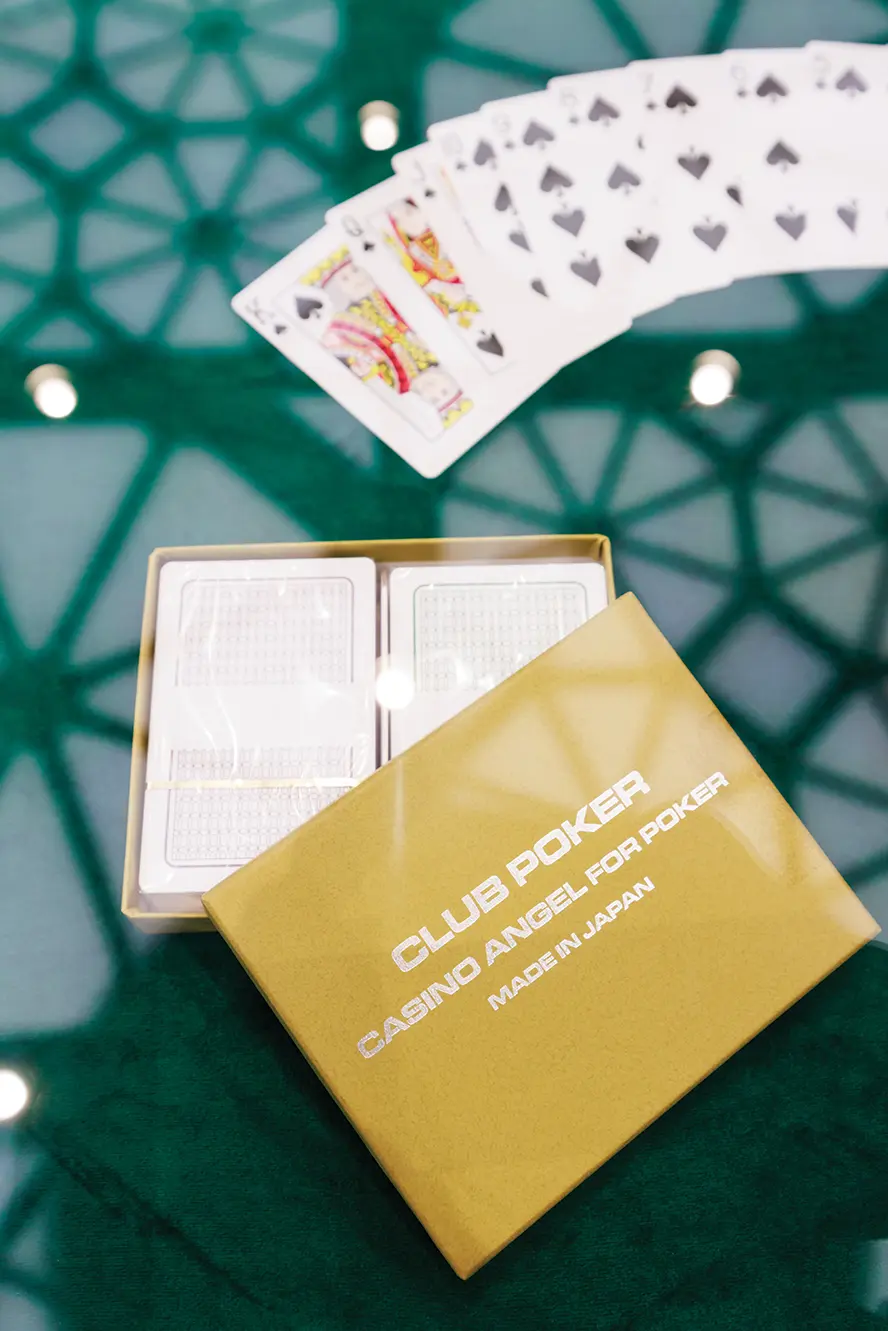 BB: Given that Angel pioneered pre-shuffled cards and the Angel Eye shoe, can you share some insights into your product development strategy and how you identify opportunities for innovation in such a niche yet critical segment of the industry?
BB: Given that Angel pioneered pre-shuffled cards and the Angel Eye shoe, can you share some insights into your product development strategy and how you identify opportunities for innovation in such a niche yet critical segment of the industry?
YS: Well, we talked a little bit about the Angel Eye and we can use the pre-shuffled cards as another example. Pre-shuffled cards were also based more on security – the main purpose was to decrease the number of people that actually handled or touched the cards and therefore the number of people who had the opportunity to do anything wrong. That was the main problem it solved.
The other security aspect that our pre-shuffled cards solved had to do with our shuffling machines. None of the shuffling machines in our manufacturing line have any data or information about the sequence of the cards, even during the shuffling process. Normally, if you were trying to automate a shuffling procedure for 416 cards – an 8-deck pre-shuffle – a computer will instruct the machine to align those cards in a certain 416-card sequence, but we didn’t do that. What we did was similar to a physical random shuffle, so the result is random and the process adopted did not require data on the sequence of the cards. That was very important to us because we knew that having sequence data was something that could be exploited, which casinos would not like.
Of course, the convenience side – on top of the security side – is something that is also good, but our main focus was always on security and this was formed through our conversations with the casinos: what they wanted and what they required.
BB: Let’s talk about the importance of Macau. Angel has been a big part of the Macau story since liberalization in 2002. What are your memories of those early days working with Macau’s newly named concessionaires?
YS: There are so many memories that it’s difficult to choose one, but when we entered the market, we saw that the number of concessionaires would increase to six in the very near future. Everyone was thinking big and had big plans for the future, so that was very, very impressive.
I was also very impressed with every opening of every big new casino in Macau. It was interesting because these properties had been planned for three years or five years, so there was a combination of lots of nervousness and lots of happiness on opening day. Angel also had people on site making sure that the cards and shoes functioned well, so we got to share in some of those nerves and the elation that came with having an opening. Those are very much fond memories of what happened in terms of the development of Macau.
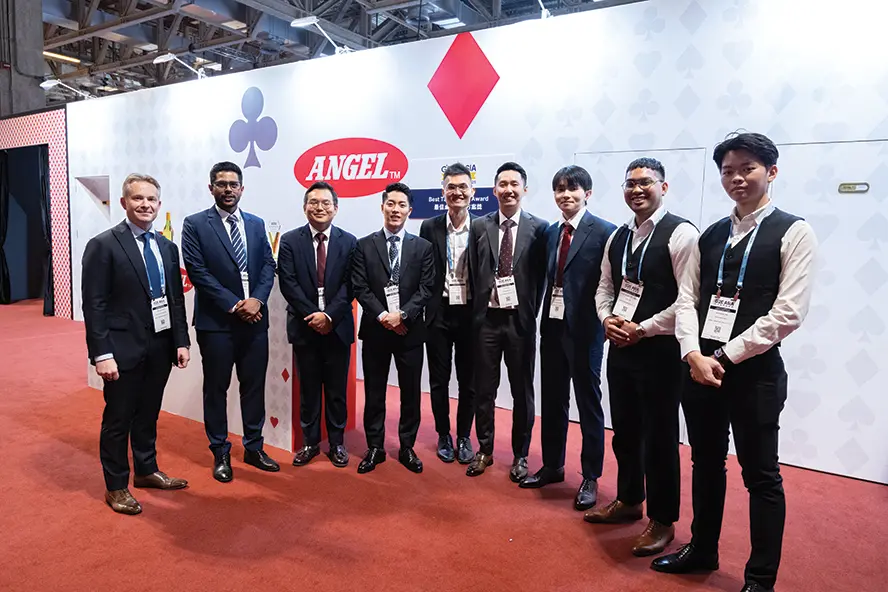 BB: It took a long time, but Angel recently announced that it would develop a new US$130 million factory in Macau. Why is now the right time to expand your Macau manufacturing capabilities?
BB: It took a long time, but Angel recently announced that it would develop a new US$130 million factory in Macau. Why is now the right time to expand your Macau manufacturing capabilities?
YS: Well first of all, going back to the previous question, I didn’t think Macau would become this big. I thought maybe half or a third of what it has become. But I knew it would be big enough that, even 20 years ago, I had ideas around having a factory in Macau.
With the 2011 earthquake in Japan, it became more of a dire desire to figure out a global strategy for manufacturing and to diversify our locations, but at that time we looked very strenuously and we weren’t able to find any land in Macau to build a factory. We decided to build our overseas factory first in Singapore at that time. So, it’s not so much that we’re building our Macau factory now, it’s that we’ve been always wanting to and now we have the opportunity to do so. The thought was always there that we needed to have a manufacturing base in Macau.
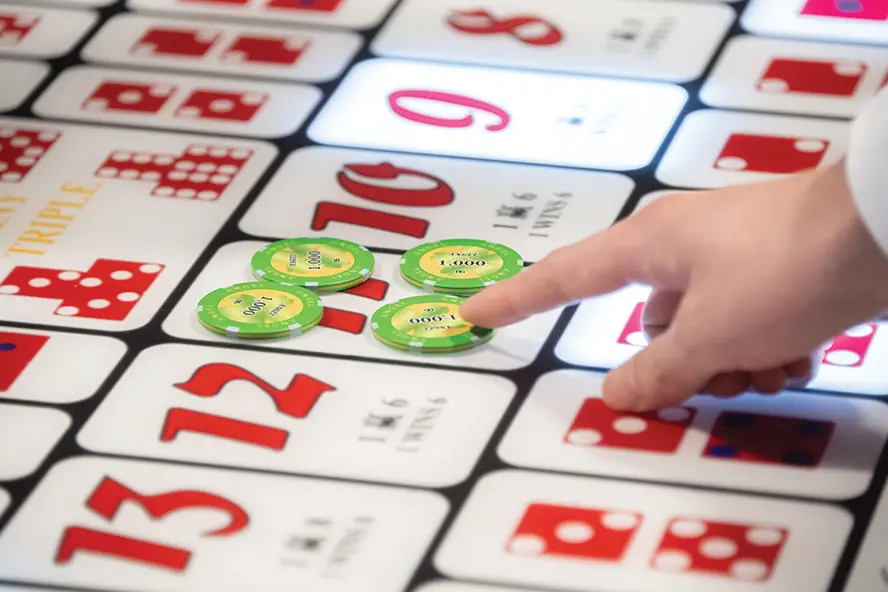 BB: Angel was also one of the first suppliers to start development of smart gaming table technology via your hybrid AI/RFID solution. How and why did you see smart tables becoming such an important part of the future of Asia’s casino floors?
BB: Angel was also one of the first suppliers to start development of smart gaming table technology via your hybrid AI/RFID solution. How and why did you see smart tables becoming such an important part of the future of Asia’s casino floors?
YS: This was around 2013 and at that time our customers would say to us that Angel had really helped the revolution of the playing card side of the business. With the Angel Eye shoe, the Angel Cabinet, the pre-shuffled cards – the elements were all in place for a smart table on the playing card side of things, but one of their big laments was that for the chips side, nothing had changed for the 20 years prior. They believed that if Angel got involved, with our innovation and our technology, we might be able to solve some of these issues that had been stagnant in the past. We had many companies tell us this.
So, we started doing our research and our homework and we found out that there were issues that needed to be solved. That was our foray into the smart table market.
BB: Did you immediately recognize the many use cases for smart tables – security, data tracking, player rewards – or was there one main use case that the technology was first developed for?
YS: Of course, we were thinking about all these things from the very beginning, but we just wanted to take a step back first, because our initial thought was that we needed to make sure we were capturing the facts of what was happening on the tables. We knew that if we had the correct data on who bet how much where, the game results, the inventory of the chip float, whether the right payout or collection was made, then we could really make a difference.
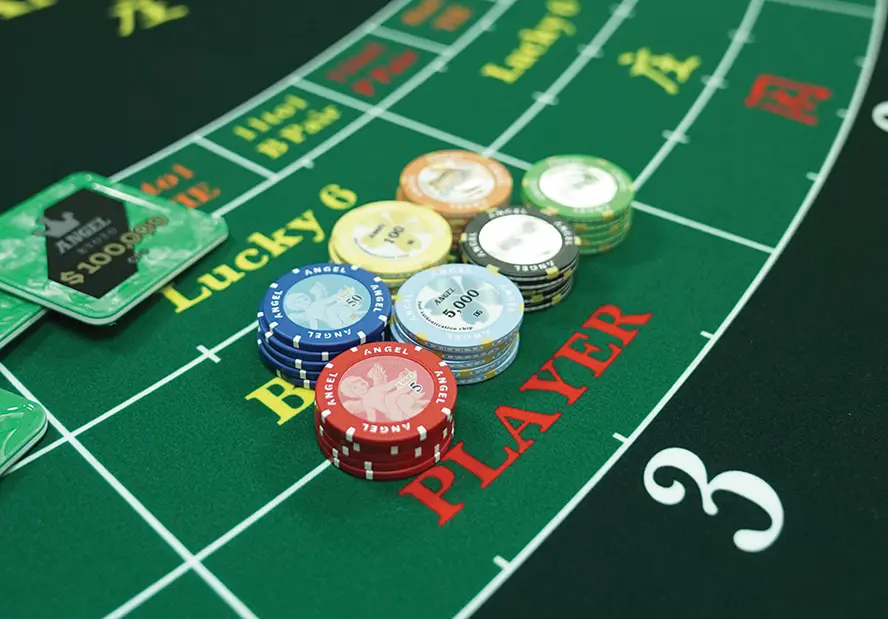 For what was done longhand – in some VIP rooms they may have even done this for every single transaction – if the facts were laid out in digital data form then the utility for that data would be countless, from player rewards to security or whatever.
For what was done longhand – in some VIP rooms they may have even done this for every single transaction – if the facts were laid out in digital data form then the utility for that data would be countless, from player rewards to security or whatever.
We knew that if the facts of the data didn’t match the facts on the table, then there must have been some sort of breach, meaning it’s a security issue. If we tracked which people bought what then this would be player rewards or client management, and if we were tracking how many side bets were made on a certain side bet then this would be product management in terms of determining which side bets worked and which didn’t.
So, we knew that if we could get the data and sort it into a digestible form, then there would be no limit to how people can use it.
BB: Angel acquired Gaming Partners International (GPI) in 2019. How has the integration of GPI influenced your global strategy?
YS: Our first idea behind the purchase of GPI was with smart tables in mind. We didn’t think so much about the chips themselves, but it was similar to how we developed the Angel Eye shoe whereby the start was the Angel card: the cards had to be printed in such a way that it would enable smooth integration with the hardware that reads the cards.
It was a similar thought process behind the chips themselves in terms of how to select the correct RFID chip or how to embed those tags into the chips.
Another issue was the AI (artificial intelligence) and whether we would be able to control the quality enough on the physical side for it to be used for the camera AI system. An example of that is color: if we were looking for the color of the chip to determine the denomination, were we going to be able to control the color of chips so that different shades of red versus orange versus pink would be distinguishable? It was about quality control and material selection, and even GPI at that time wasn’t able to do this.
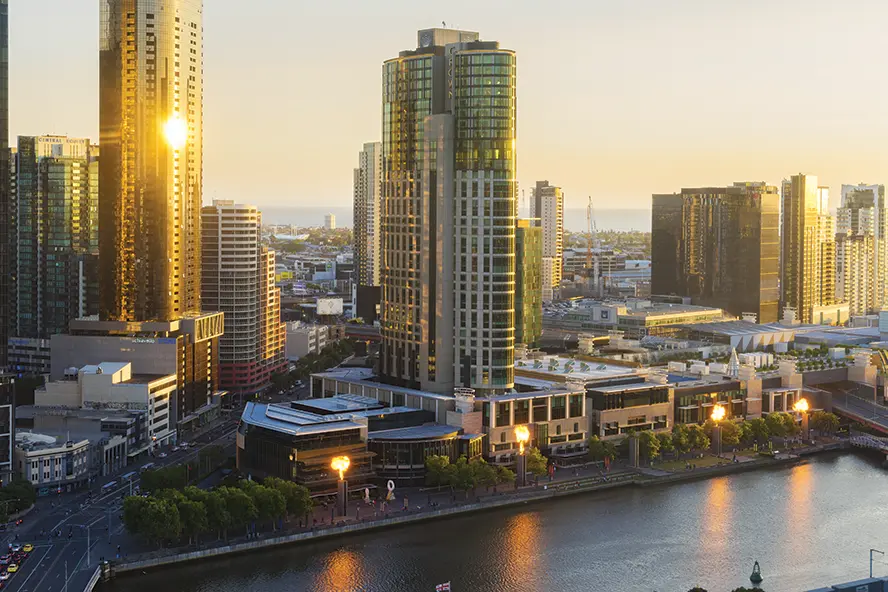
Starting from scratch was one idea we had, but acquiring the number-one manufacturer and then improving upon what they already had was a faster way, so that was the strategy behind our GPI acquisition.
BB: You’ve recently completed smart table installations across all Sands China properties and are expanding into Singapore, the Philippines and Australia. Are there any other key markets or regions Angel is targeting for growth in this segment?
YS: We are currently fielding a lot of inquiries from different casinos, so our first task is to fulfil those inquiries. There have also been some inquiries regarding different games other than baccarat, so things like roulette or sic bo or blackjack. All those different games require us to refine our product line, so it’s important for us to tackle these new inquiries as they come and make sure that we keep up.
For the USA market, we know that there are high potential needs, but how do we tackle that market? We’re currently looking at it from different angles.
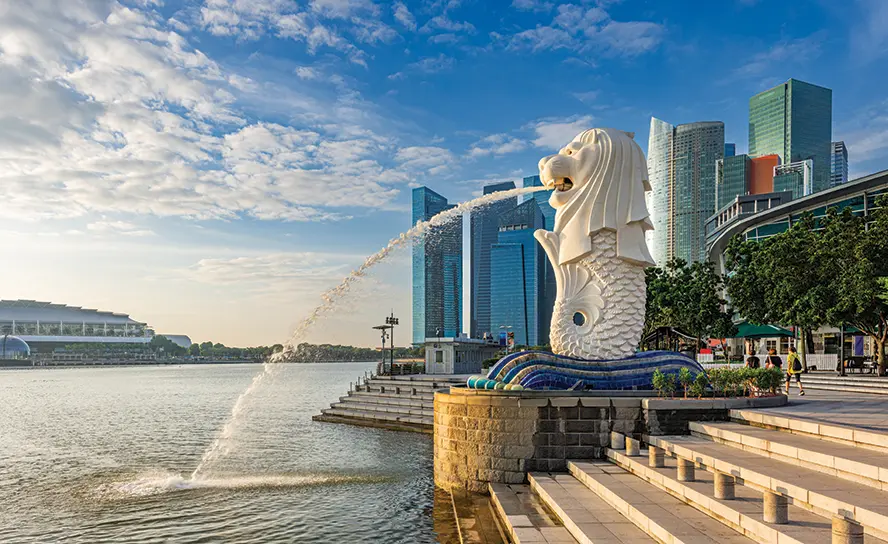 BB: On a personal note, I have been told that you are a very hands-on chairman who has strong knowledge of even the smallest details of Angel Group’s day-to-day operations and the people who work within the company. Is that a characteristic you consider to be important?
BB: On a personal note, I have been told that you are a very hands-on chairman who has strong knowledge of even the smallest details of Angel Group’s day-to-day operations and the people who work within the company. Is that a characteristic you consider to be important?
YS: Yes. If I hear stories about what is happening in the company indirectly from people, then there may be two or three layers covering it, and the accuracy of the incident or the fact itself might be decreased by 50%. More than that, there would be no way of knowing what the “temperature” or the intensity of that issue is. For example, let’s say there is a defect. Without knowing what the customer’s feelings are or their “temperature”, then we don’t know what kind of countermeasures we should put in place. Does it require a change in the rules or a change of the operations or even a change in the machinery or equipment? Those are difficult decisions that need to be made, and they require the utmost information to be able to make the right decision.
Having that direct line of communication and direct source of information is important because it enables problem solving.
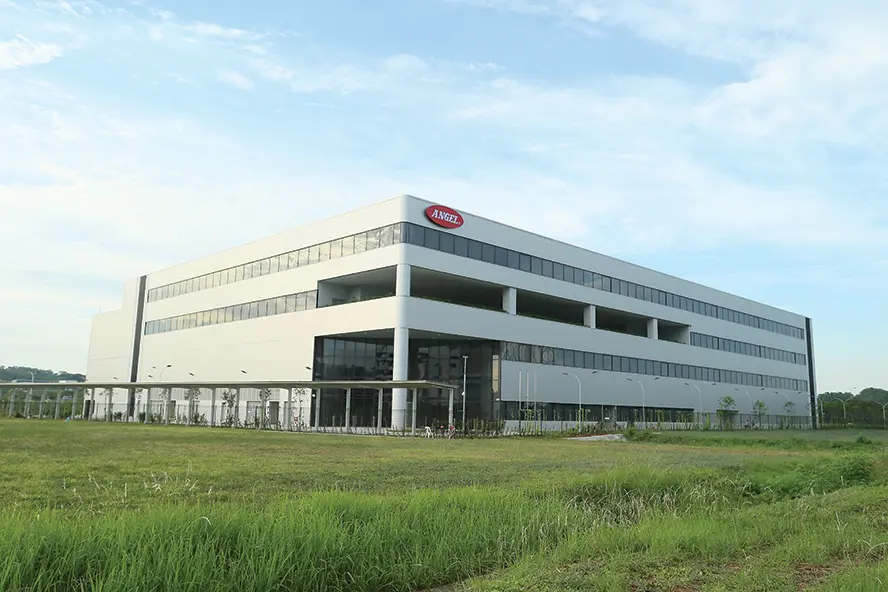
BB: How would you describe your leadership style and how has it evolved over the past few decades?
YS: When I first started, especially within this industry, I started out modestly with maybe two salespeople and a few dozen people involved directly in the casino cards manufacturing side. At such small scale, it had to be hands on so that I could oversee our early venture into the casino industry. This was possible at the time because we didn’t really have many customers in the early parts of the 2000s.
As things got larger and we acquired a lot more customers, there became limits to what I could handle directly. Getting to the facts and identifying issues and problems so I could come up with the direction to solve those issues remained something I was very hands-on with but once that was established the execution and carrying out of what needed to be done became more delegated to the leaders of the respective locales or fields.
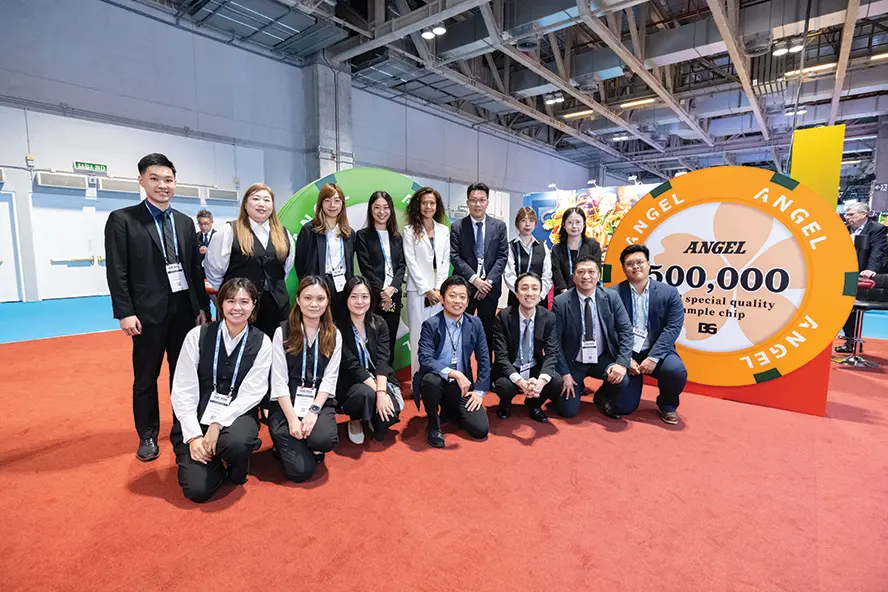 The third stage was after we had acquired GPI and when smart tables became more of our focus, so just delegating implementation was not enough. “Thinking” and “strategizing” needed to be delegated as well. So, each leader was asked to think, strategize and come up with their own ideas on how to tackle certain problems.
The third stage was after we had acquired GPI and when smart tables became more of our focus, so just delegating implementation was not enough. “Thinking” and “strategizing” needed to be delegated as well. So, each leader was asked to think, strategize and come up with their own ideas on how to tackle certain problems.
My task as a leader was to make sure that each delegate’s thinking and strategizing process was aligned with mine. This was not necessarily to force my thoughts onto others but to make sure that how they interpreted the facts and reached a solution was in tune, so that I could give appropriate advice. This enabled the growth of our leaders in the different fields.
This is how my leadership style changed over three stages.
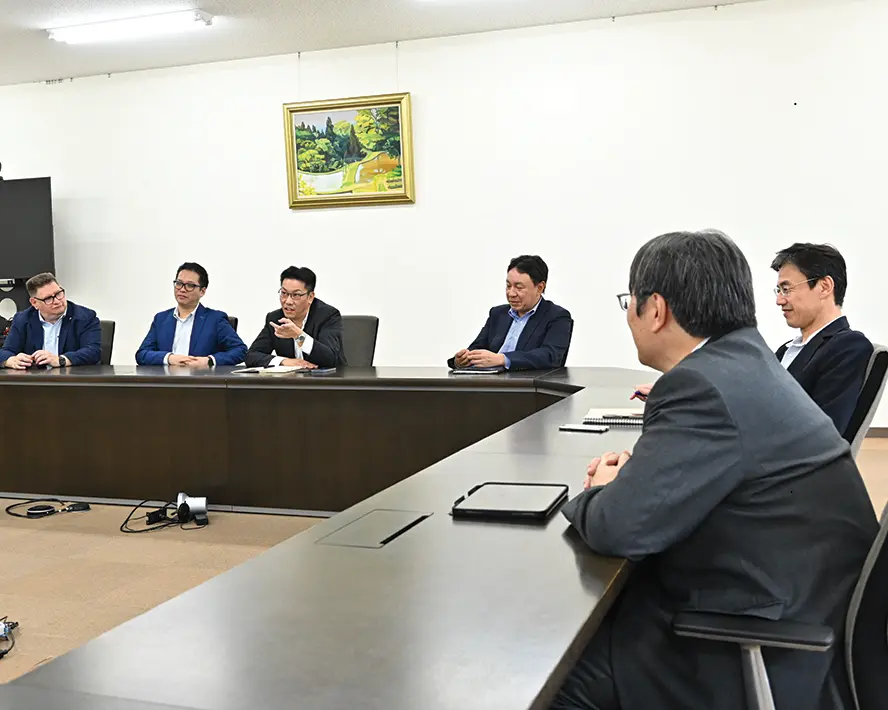 BB: Angel is a large company but there are only 24 hours in a day. What does a typical working day in the life of Yasushi Shigeta look like?
BB: Angel is a large company but there are only 24 hours in a day. What does a typical working day in the life of Yasushi Shigeta look like?
YS: I think about the company 24/7, 365 days a year. Over the past 30 years there has not been a moment that my mind has wandered away from the company. As a manager of the company, an executive of the company, I see that as my destiny. Of course, when I’m with my family I may forget for a moment, but I always come back to thinking about the company.
Other than that, it’s pretty much the same for me as a lot of other managers and executives in that I come to work at 8am or 9am and a lot of the time I have dinners planned with clients or suppliers. When I’m in Japan, maybe half of my time is spent with outside parties such as financial institutions or suppliers or lawyers or what not. There are also some business trips overseas or to Tokyo around twice a month.
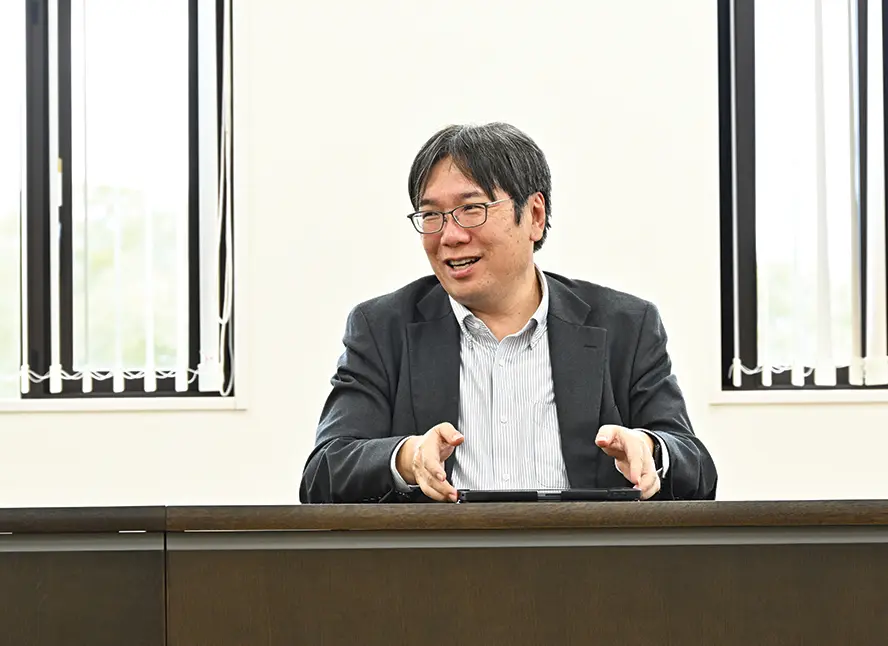 BB: Angel is an interesting case study in the gaming industry supplier space in that you are known to be cautious when it comes to protecting your trade and manufacturing secrets. In fact, although you do some advertising and editorial promotion, it is noticeable that you are very measured in your approach. Can you discuss your philosophy behind this?
BB: Angel is an interesting case study in the gaming industry supplier space in that you are known to be cautious when it comes to protecting your trade and manufacturing secrets. In fact, although you do some advertising and editorial promotion, it is noticeable that you are very measured in your approach. Can you discuss your philosophy behind this?
YS: In this industry, in the casino industry, there are a lot of non-disclosure clauses in our contracts, and that’s what we try to follow. There are limits on what we can disclose, even in terms of what kind of business we do.
For example, if we disclose how many cards we sell to a client then that might be information on how popular that casino is. We don’t think Angel should be involved in that sort of information so we don’t disclose any of that. Also, there may be trade secrets there that would be detrimental to the entire industry if they got out and people knew how it was done or what kind of security features were in place, so we do not disclose manufacturing methods or factory operation methods.
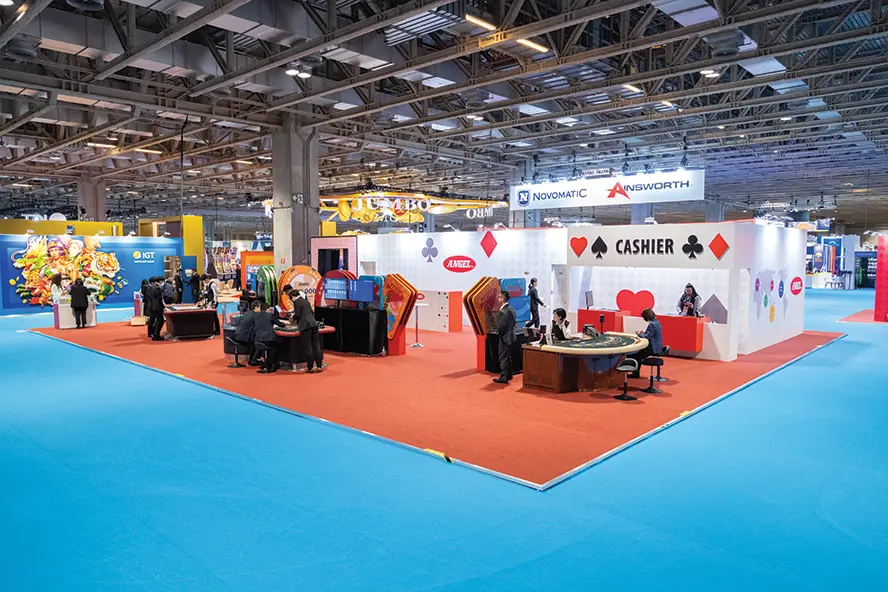 By protecting this information, we think we are able to protect the industry as a whole.
By protecting this information, we think we are able to protect the industry as a whole.
In terms of how we promote ourselves, we bring our clients – the people who buy our products – directly to our factory so we can show them around and they can see how it’s done directly. We are able to do this because we started with around 10 big clients and now we have 30 to 50 large clients that we do direct business with on a face-to-face, name-by-name basis. This method might have been difficult if we were dealing with 1,000 casinos in the US or Europe. Also, we are focused on support from the background, so there is no need to promote ourselves in the public.
Doing direct sales is much more efficient than trying to get the word out through some sort of publication. Being a private company, we don’t need to appease any shareholders, so that’s really the way we think about promotions as a company.
BB: Angel is of course a privately owned company. Have you ever considered publicly listing the company?
YS: We have never had any specific ideas on going public, like in which market or anything like that, but we have undertaken mental exercises on what would happen if we were to go public: the pros and cons were we to do so.
There were three deciding factors as to why we have chosen not to go public. One is that, like I said, this is a very security-driven industry and being able to control information is critical in protecting the customers and the industry. That might have to change were we to go public.
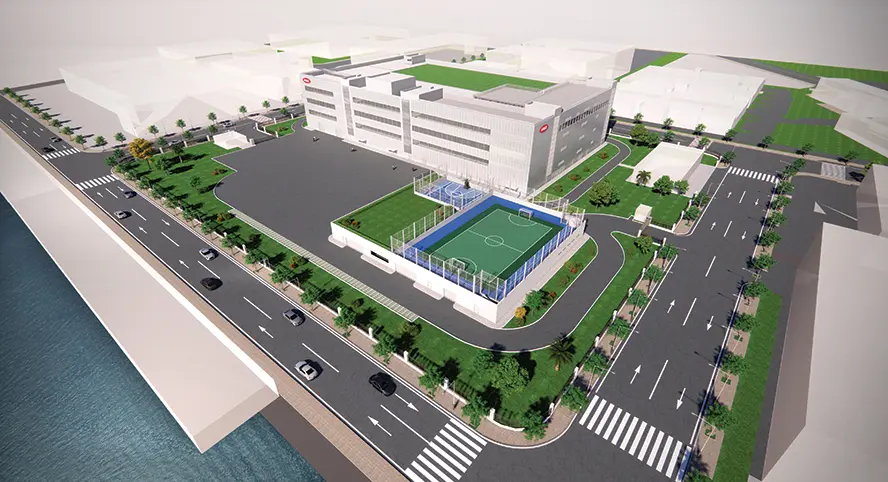
The second reason is that the gaming industry has been a very fast-moving industry with many changes happening quickly. And in order for us to adapt to that, we need to make decisions on the spot and be nimble in our decision-making process. As a private company, we don’t have to wait until the end of the year when our new budgets come out or we decide on our long-term strategy. If we need to, we can make decisions very quickly, and the speed of doing that can be critical.
The third aspect is that we sometimes need a very long-term view of things. Smart tables are a good example. When we began on that journey, we might have thought it would take 10 years for things to start, but when COVID hit after four or five years of development, it really put a stop to things from a market standpoint. If we were a public company, we may have decided that we needed to cut back or stop investing in this business line, whereas being a private company we were able to decide there was value for our customers in continuing even though there wasn’t a clear timetable on when we might realize that value.
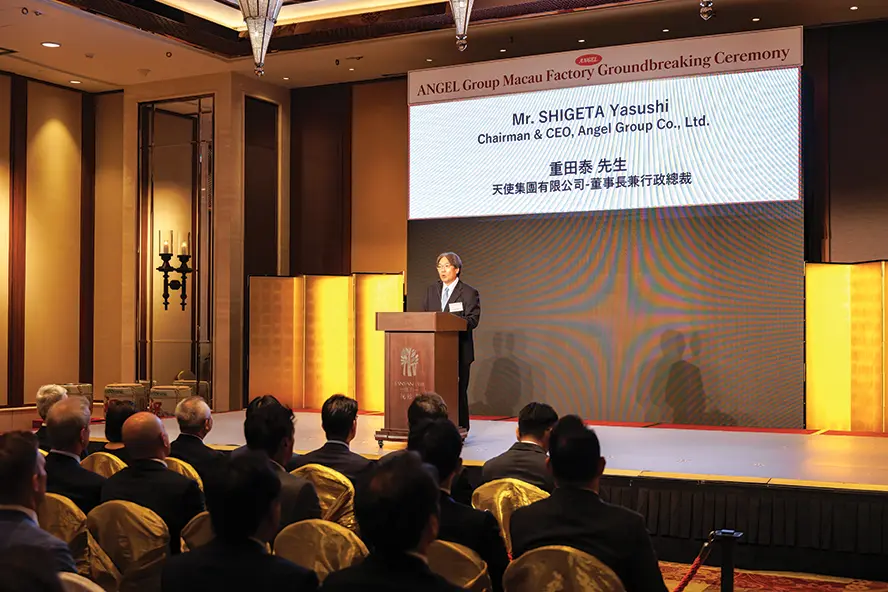 Another example of this long-term planning is our Macau factory. Right now, do we have enough capacity to serve the global market from our Japan and Singapore factories? Yes, we probably do. But for long-term planning, is that good enough or is it better to have a local Macau factory serving the local market? There is a real and innate need to have local manufacturing that can’t be explained by numbers yet, and it can’t be explained by any short-term gains that we may be able to see. It’s all about the long-term vision, looking maybe 10 years or 20 years down the line. Those are the time frames that we can have as a private company and which we may not have the luxury of if we were to go public.
Another example of this long-term planning is our Macau factory. Right now, do we have enough capacity to serve the global market from our Japan and Singapore factories? Yes, we probably do. But for long-term planning, is that good enough or is it better to have a local Macau factory serving the local market? There is a real and innate need to have local manufacturing that can’t be explained by numbers yet, and it can’t be explained by any short-term gains that we may be able to see. It’s all about the long-term vision, looking maybe 10 years or 20 years down the line. Those are the time frames that we can have as a private company and which we may not have the luxury of if we were to go public.
So those are the three reasons for us to remain private: information control, the speediness of our decision making and the long-term vision of our future outlook.
